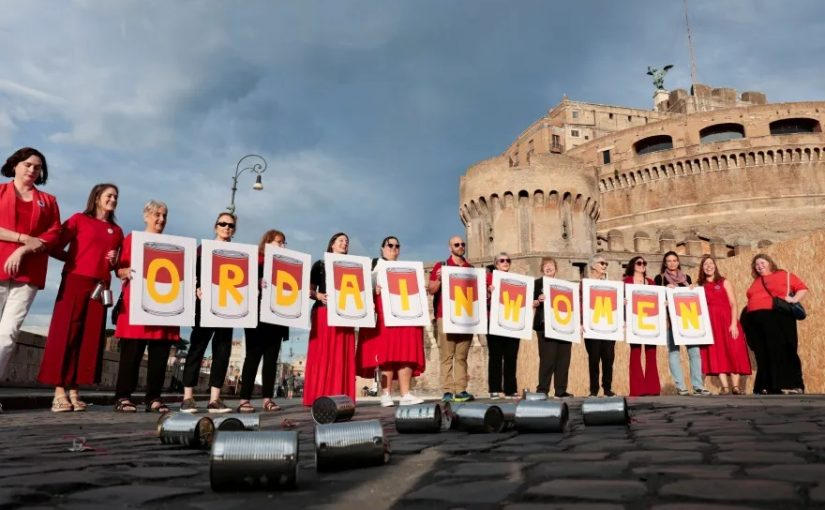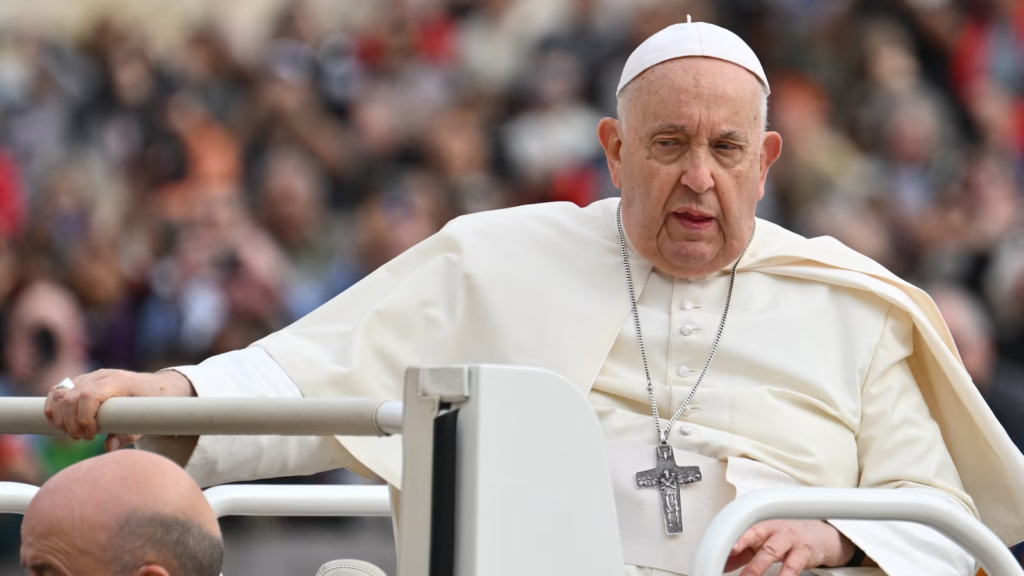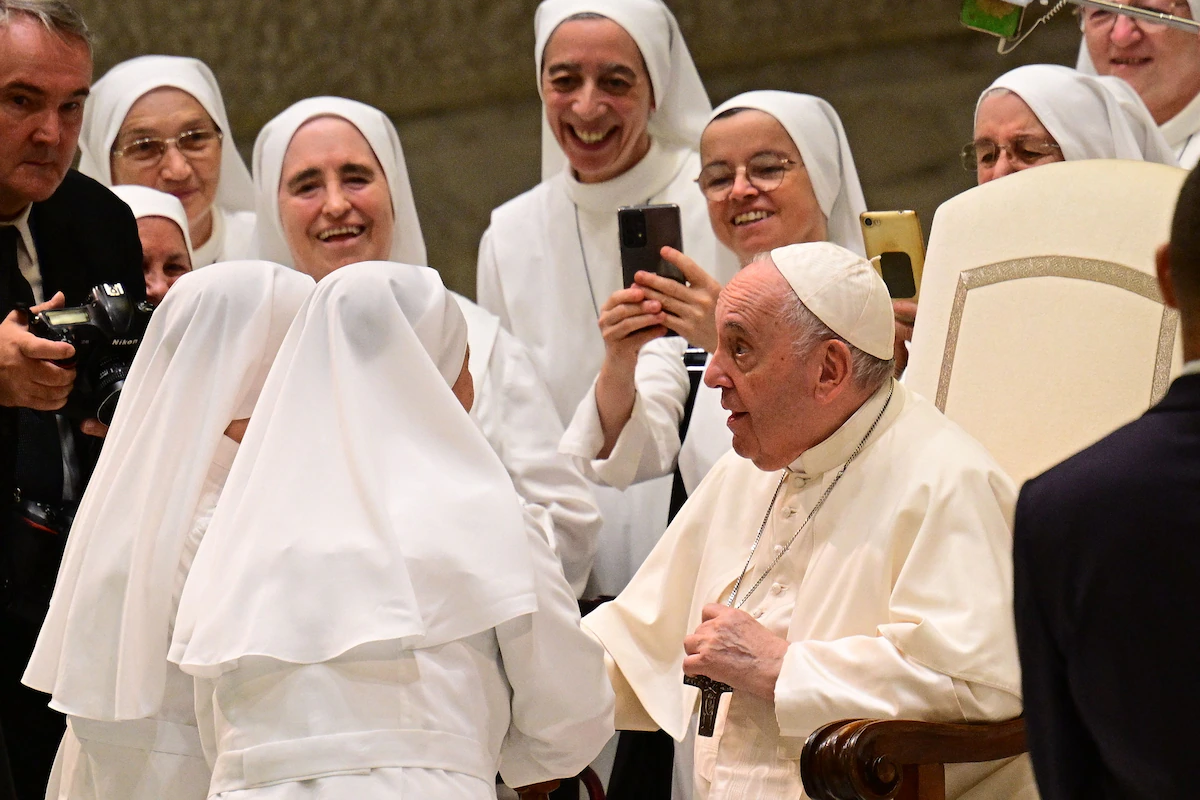Advocates for greater inclusion of women in the Catholic Church are expressing frustration as Pope Francis and the Vatican have largely sidestepped the pressing issue of women’s ordination during the current Synod of Bishops.
Despite some incremental steps toward increased female participation in Church governance, the core issue of ordaining women as clergy remains off the table. Critics argue that this avoidance signifies a deep-seated reluctance within the Church hierarchy to genuinely address the role of women in religious leadership.
The situation has drawn widespread criticism both from within and outside the synod, highlighting the complexities Pope Francis faces as he tries to balance progressive demands with the Church’s conservative traditions.
Women’s Role in the Church: A Long-Standing Debate
The question of women’s ordination has been a contentious issue within the Catholic Church for decades, if not centuries. Advocates for female clergy argue that early Church history provides evidence of women serving as deacons, a position with ordained status, although distinct from priests.
Deacons, unlike priests, cannot celebrate Mass, but they play a crucial role in pastoral care, preaching, and various Church ministries. Historians point out that there are records of women functioning in such roles in the early centuries of Christianity.
Despite this historical precedent, the modern Catholic Church has maintained an all-male clergy, with Pope John Paul II famously declaring in 1994 that the Church has no authority to ordain women as priests.
Read : Both Trump And Kamala Harris Are Against Life, Choose the Lesser Evil: Pope Francis
The issue came into sharper focus during the Synod of Bishops, a gathering that followed a historic two-year canvassing of Catholics worldwide. At the previous synod, held in 2022, it was emphasized that the inclusion of women in decision-making roles within the Church was “urgent.”
This set high expectations for the current gathering, with many believing that this would be the moment when the Church would finally address the issue of female ordination. However, as the synod draws to a close, it is clear that the subject has been deferred once again, leaving advocates disappointed.
Read : Pope Francis Becomes the First of His Title to Attend the G7 Summit: Sounding the Alarm on AI
Pope Francis has taken steps to promote the inclusion of women in the Church’s decision-making processes. For the first time, nearly 60 women were given voting rights at this synod, a move that was widely seen as a positive step forward. However, this did not extend to the topic of ordination.
The Pope has delegated the matter to the Vatican’s doctrinal office for further study, effectively removing it from the synod’s agenda. This decision has been met with criticism from those who see it as a delay tactic rather than a meaningful effort to address the issue.
Criticism from Advocates and Theologians
One of the most vocal critics of the Vatican’s approach is Lucetta Scaraffia, an Italian journalist and former editor of a women’s magazine published by the Vatican’s newspaper. Scaraffia argues that the steps taken so far by Pope Francis to improve women’s roles in the Church are merely symbolic.
“What [Pope Francis] has done so far to improve the condition of women in the Church has only been for appearance’s sake,” she said, expressing frustration that women are still waiting for a “good pope” who will recognize their true value within the Church.
This sentiment is echoed by Marinella Perroni, an influential Italian theologian and a founder of the Committee of Italian Women Theologians. Perroni highlighted the distress caused by comments made by Cardinal Victor Fernandez, the Vatican’s top doctrinal official, during the synod.

Fernandez stated that “there is still no room for a positive decision” regarding the ordination of women as deacons, which Perroni described as deeply disheartening. She compared the current situation to a similar moment in the 1970s when Pope Paul VI declined to move forward with women clergy, despite a Vatican report indicating that scripture did not prohibit female ministers.
“There is nothing left to study,” Perroni said, emphasizing that the theological arguments have already been thoroughly examined. For many, the continued delays feel like an evasion of responsibility rather than a thoughtful consideration of the issue. Perroni’s frustration reflects a broader disillusionment among many women within the Church who feel that their contributions are undervalued and that their voices are not being heard.
Pope Francis’ Stance and the Global Catholic Community
Pope Francis, now 87 years old, has long been seen as a reformist pope, willing to challenge established norms within the Catholic Church. His papacy has been marked by efforts to open dialogues on previously taboo subjects, including divorce, LGBTQ+ rights, and environmental issues. However, on the issue of women’s ordination, Pope Francis has shown more caution, reflecting the deep divisions within the global Catholic community.
Austen Ivereigh, a British author who has written extensively about Pope Francis, explained that the pope is particularly sensitive to what he perceives as Western assumptions regarding progress on gender issues.
According to Ivereigh, Francis believes that there is an expectation in the Western world that the Catholic Church should adopt a more progressive stance on women’s roles, but he does not necessarily agree that the Church should follow this path. “I don’t think he accepts that,” said Ivereigh, noting that Francis does not see the ordination of women as part of the Church’s future.
This resistance has led to tensions not only within the synod but also among the wider Catholic community. Last month, during a visit to a Catholic university in Belgium, Pope Francis made comments about women that were widely criticized as outdated.

He described women as “daughters, sisters, mothers” and emphasized their roles in nurturing and caring for others. These comments sparked immediate backlash, with the university issuing a rare public statement expressing “incomprehension and disapproval” of the pope’s views. Francis responded by criticizing the university’s statement, claiming it had been pre-written and was not based on moral grounds.
These incidents illustrate the growing divide between the Vatican’s traditional stance on gender roles and the evolving expectations of many Catholics, particularly in the Western world. While Pope Francis has won praise for his willingness to engage with difficult issues, his reluctance to fully embrace the idea of female clergy is seen by many as a missed opportunity for meaningful reform.
The Future of Women in the Church
As the synod prepares to vote on its final document, which will be released on October 26, the future of women’s roles in the Catholic Church remains uncertain. The pope is expected to issue his own text in response to the synod’s recommendations, but it is unlikely that any significant changes regarding women’s ordination will be made before mid-2025, when the study groups assigned to examine the issue report their findings.
For many advocates, the delays and deferrals are frustrating, but they also recognize that the fight for gender equality within the Church is a long-term struggle. While some progress has been made in increasing women’s participation in Church governance, the question of ordination remains a significant roadblock.
The issue is not only about theology but also about power and representation. Until women are fully recognized as equals within the Church hierarchy, many believe that true reform cannot be achieved.
Pope Francis’ papacy has been marked by his efforts to balance the demands of a rapidly changing world with the deeply rooted traditions of the Catholic Church. On the issue of women’s ordination, however, his cautious approach has drawn criticism from those who feel that the Church is falling behind the times.
As the debate continues, it remains to be seen whether future synods or future popes will be more willing to take up the cause of women’s ordination.
The ongoing discussions surrounding women’s roles in the Church reflect broader societal debates about gender equality and inclusion. While the Catholic Church has made some strides in promoting women to positions of influence, the refusal to address the issue of ordination continues to cast a shadow over these efforts.
For many women within the Church, the hope is that their voices will eventually be heard, and that their contributions will be fully recognized.

